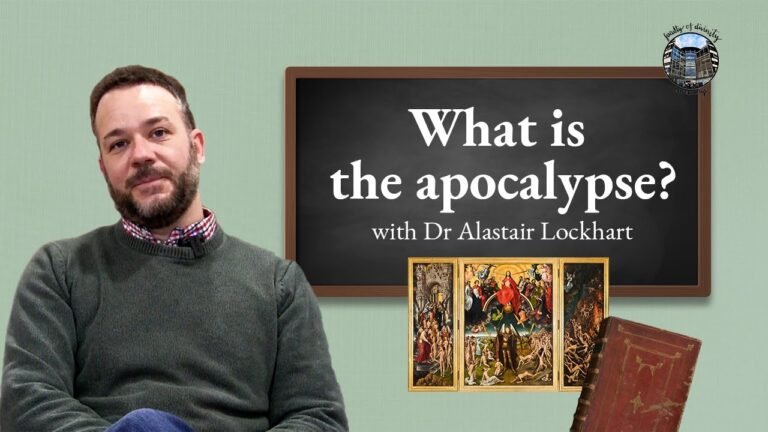Understanding the Apocalypse: A Comprehensive Definition
The term apocalypse often conjures images of catastrophic events and the end of civilization as we know it. Rooted in ancient texts, particularly in religious contexts, it has evolved to encompass a wide range of interpretations, from natural disasters to societal collapse. In contemporary discourse, the word has transcended its literal meaning, symbolizing not just destruction but also transformation and renewal. This exploration seeks to define the layers of meaning behind the apocalypse and its implications for humanity’s future.
What does apocalypse truly mean?
The term “apocalypse” often evokes visions of cataclysmic events and societal collapse, but its meaning extends beyond mere destruction. Originating from the Greek word for “revelation,” it signifies a profound unveiling of truths or realities, particularly in a spiritual or prophetic context. This duality highlights the transformative nature of apocalyptic events, where endings can also lead to new beginnings.
In religious texts, particularly the Biblical book of Revelation, the apocalypse is depicted as a climactic confrontation between good and evil, culminating in the ultimate fate of humanity. This narrative serves as both a warning and a source of hope, illustrating that while the world may face profound upheaval, it also promises renewal and redemption. Such themes resonate across cultures, where apocalyptic imagery often reflects societal fears and aspirations.
In contemporary discourse, the concept of apocalypse has evolved, encompassing not only literal interpretations but also metaphorical meanings. Major disasters, whether natural or man-made, can feel apocalyptic in their impact, reshaping our understanding of existence and community. Ultimately, the true meaning of apocalypse invites reflection on both destruction and the possibility of rebirth, urging us to consider how we respond to crises and envision a future beyond them.
What does the term apocalypse mean in Greek?
The term “apocalypse” has its roots in the Greek language, specifically deriving from the verb “apokalyptō.” This powerful word encompasses the idea of uncovering or revealing something that was previously hidden or obscured. In essence, it signifies a moment of clarity or revelation, where truths are laid bare for all to see.
In a broader context, the concept of apocalypse transcends mere disclosure; it often implies a significant transformation or awakening. Throughout history, various cultures have associated apocalyptic events with profound change, whether it be personal enlightenment or societal upheaval. This transformative aspect underscores the importance of understanding the deeper meanings behind revelations in our lives.
Today, the term is frequently used in both religious and secular discussions, often evoking imagery of dramatic endings or new beginnings. Yet, at its core, the Greek meaning invites us to reflect on the power of revelation itself, encouraging us to embrace the truths that emerge from our journeys and experiences.
How does the Bible define the apocalypse?
In the Christian tradition, the apocalypse refers to a profound revelation of divine truths, as exemplified in the Book of Revelation, also known as the “Apocalypse of John.” This term, derived from the Greek word meaning to unveil or uncover, signifies a moment where hidden realities are brought to light. The text reveals a vision of the end times, where cosmic battles between good and evil unfold, ultimately leading to the establishment of a new heaven and earth, inviting believers to reflect on their faith and the hope of redemption.
Unraveling the End: What Apocalypse Truly Means
The term “apocalypse” often evokes images of catastrophic events and the end of civilization as we know it. However, its original meaning delves deeper, rooted in the Greek word “apokalypsis,” which translates to “revelation” or “unveiling.” This duality invites us to consider not only the destruction associated with apocalyptic scenarios but also the potential for profound transformation and renewal that can emerge from such turmoil. In this light, the apocalypse serves as both an ending and a beginning, urging us to confront the truths hidden beneath the surface of our everyday lives.
As we navigate an increasingly complex world marked by environmental crises, social upheaval, and technological advancements, the concept of apocalypse challenges us to reexamine our values and priorities. Instead of succumbing to despair, we can view these moments of upheaval as opportunities for growth and change. The revelations brought forth by these experiences can inspire collective action, encouraging us to forge new pathways toward sustainability and equity. The apocalypse, then, becomes a catalyst for awakening and a call to reshape our future.
In recognizing the dual nature of the apocalypse, we empower ourselves to take charge of our destinies. By embracing the revelations that come with disruption, we can cultivate resilience and foster innovation. This perspective invites us to engage with the world more meaningfully, prompting us to ask critical questions about our role in shaping a better tomorrow. Ultimately, unraveling the true essence of the apocalypse reveals not just an end, but the possibility of a renewed vision for humanity—a chance to build a future grounded in understanding and connection.
Beyond the Myths: A Clear Look at Apocalypse
Throughout history, the concept of the apocalypse has been steeped in myth and superstition, often portrayed as an impending cataclysmic event. Yet, a deeper understanding reveals that these narratives are not merely tales of doom; they serve as reflections of societal fears and hopes. By examining the underlying themes of transformation and renewal, we can appreciate how apocalyptic stories encapsulate a collective yearning for change in the face of adversity, highlighting humanity’s resilience even in challenging times.
In today’s context, the term “apocalypse” can be reinterpreted to signify a moment of reckoning rather than destruction. As we confront pressing global issues such as climate change, social inequality, and technological upheaval, the notion of an apocalypse prompts a vital conversation about responsibility and proactive change. This perspective encourages us to envision a future shaped not by fear but by possibility, urging individuals and communities to engage in meaningful actions that can lead to a brighter, more sustainable world.
Decoding Destruction: The Essence of Apocalypse
In a world increasingly captivated by visions of doom, the essence of apocalypse transcends mere chaos; it serves as a profound mirror reflecting humanity’s deepest fears and aspirations. This intriguing concept encapsulates the duality of destruction and renewal, urging us to confront the fragility of our existence while igniting a spark of hope for rebirth. As we navigate through stories of cataclysm, whether in literature, film, or art, we uncover the underlying truths of resilience and transformation that lie beneath the surface. Ultimately, the apocalypse becomes not just a harbinger of endings, but a canvas for exploring the potential of beginnings, prompting us to reimagine our place within the cosmos and the legacy we choose to leave behind.
The Final Chapter: Defining Apocalypse in Context
The concept of apocalypse extends far beyond mere destruction; it embodies a transformative moment that reshapes existence. Historically rooted in religious texts, the term has evolved to signify not only physical cataclysms but also profound societal changes. This multifaceted interpretation invites us to explore how these pivotal events, whether through natural disasters or man-made crises, hold the potential to catalyze renewal and reimagination of our world. By examining the narratives surrounding apocalyptic scenarios, we uncover insights into human resilience and the capacity for rebirth amidst chaos.
In contemporary discourse, the idea of apocalypse resonates with pressing global challenges such as climate change, political instability, and technological upheaval. These threats often evoke a sense of urgency, prompting collective reflection on our future. As we navigate these turbulent times, it becomes essential to redefine apocalypse not merely as an end, but as a profound opportunity for change. Embracing this perspective can inspire creative solutions and foster a sense of hope, reminding us that even in the darkest moments, the seed of transformation lies within the potential for a new beginning.
Apocalypse Unveiled: Insights into Its Meaning and Impact
Apocalypse, often associated with catastrophic events, transcends mere destruction to embody profound transformation. At its core, the term derives from the Greek word meaning “revelation,” signaling not just an end, but a new beginning. This duality invites us to reflect on our current trajectory, urging a deeper understanding of the signs that herald change and the potential for renewal that lies within upheaval.
Throughout history, apocalyptic narratives have shaped cultural and spiritual landscapes, offering both warnings and hope. From ancient texts to modern literature, these stories serve as mirrors, revealing societal fears and aspirations. They compel us to confront uncomfortable truths about our existence, urging a collective re-evaluation of values and priorities in the face of existential threats, whether environmental, political, or social.
As we navigate an era marked by uncertainty, the insights gleaned from apocalyptic themes can be profoundly impactful. They challenge us to embrace resilience and adaptability while fostering a sense of community in the face of adversity. Ultimately, understanding the apocalypse as a catalyst for change can empower us to envision a future that transcends mere survival, guiding us toward a more harmonious coexistence with our planet and each other.
The concept of the apocalypse transcends mere destruction; it embodies a profound transformation that challenges our understanding of existence and humanity’s role within it. Whether viewed through cultural, religious, or scientific lenses, the apocalypse prompts critical reflection on our values, our relationships with each other, and our planet. As we navigate an ever-changing world, defining the apocalypse becomes not just an exploration of potential endings but an invitation to envision new beginnings and possibilities for renewal.







